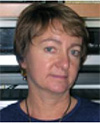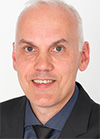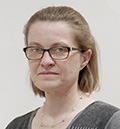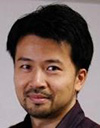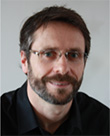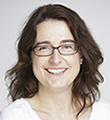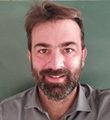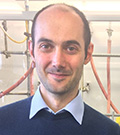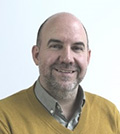
Invited speakersPlenary speakers
Tiziana Benincori (Università degli studi dell'Insubria, Italie) Tiziana Benincori is Associate Professor since 2002 at Università degli studi dell'Insubria, Varese, Italy. Her main scientific interests are related to heterocyclic chemistry and chirality. She is currently working on a broad variety of topics : polyconjugated heterocyclic semiconductors, such as functionalized oligo- and poly-heterocycles with high constitutional and stereochemical order, inherently chiral oligo- and poly-thiophenes ; chiral ligands such as diphosphane chelating ligands with a biheteroaromatic atropisomeric backbone, or diphospholane ligands with thiophene and pyrrole scaffold, for homogeneous stereoselective catalysis ; chirality in the absence of rigid stereogenic elements, investigated in the residual enantiomers of chiral C3 symmetric tris-arylphosphanes and phosphane-oxides. She became Associate Professor after winning a permanent Researcher position in 1993. She was awarded in 1991 a PhD in Chemical Sciences at the University of Milan.
Eric Meggers (Universität Marburg, Allemagne) Eric Meggers is Full Professor since 2007 at the Philipps-Universität Marburg, Germany. His research focuses on asymmetic catalysis, mainly through the design of novel chiral catalysts and their application to the development of synthetic methods. Most particularly, his research group develops the use of "chiral-at-metal" catalysts where the metal center serves both as stereogenic and reactive center, and works on stereocontrolled organic photochemistry and electrochemistry. He won in 2020 the EARTHCAM ERC Advanced Grant for the development of enantioselective catalysis based on Earth-abundant metals. He was previously Assistant Professor at the University of Pennsylvania, USA, after working as postdoctoral researcher at the Scripps Research Institute at La Jolla, USA, with Prof. Schultz. He was awarded in 1999 a PhD in Organic Chemistry at the University of Basel, Switzerland, under the direction of Prof. Giese.
Marie-Claire Schanne Klein (Ecole Polytechnique, Paris) Marie Claire Schanne Klein is a CNRS Director of Research at Laboratory for Optics and Biosciences, CNRS / INSERM / École Polytechnique / Institut Polytechnique de Paris. Her research focuses on the use of Second Harmonic Generation (SHG) microscopy as an efficient technique to probe the 3D architecture of collagen (the main structural protein in mammals), and to characterize cultural heritage artefacts that are heterogeneous scattering media similarly to biological tissues. She worked previously as a CNRS researcher at Laboratory for Quantum Optics, CNRS / École Polytechnique from 1991 to 2001, after obtaining her PhD there working on the mechanisms and dynamics of nonlinear optics of semiconductor doped glasses in the strong confinement regime.
Hiroshi Yamamoto (Institute for Molecular Science, Okazaki, Japon) Hiroshi Yamamotois Professor at the Institute for Molecular Science, Okazaki, Japan, since 2012. His research focuses on the development of organic electronics, using strongly-correlated electron devices showing insulator-to-metal Mott or even superconducting transitions, chirality-induced spin selectivity, and nanostructuration such as supramolecular nanowires showing 3D periodicity. He worked previously between 2000 and 2012 as researcher in the Condensed Molecular Materials Laboratory, RIKEN, after working there as postdoctoral researcher. He worked one year as Research Associate at the Faculty of Science, Gakushuin University, after obtaining his PhD in 1998 at the University of Tokyo, on controlling the arrangement and electronic structure of donor molecules in organic conductors.
Etienne Brasselet (Laboratoire Ondes et Matières Aquitaine, Université de Bordeaux) Etienne Brasselet is CNRS researcher since 2006 at University of Bordeaux. His scientific interests mainly focus on the interaction of electromagnetic and acoustic waves with condensed matter, liquid or solid. Liquid crystals are prime choice model systems exploited for their anisotropic and possibly chiral properties, as well as their ability to exhibit topological defects. He is especially interested in situations where structured fields meet structured matter, whenever topology and chirality are at play. He worked previously as postdoctoral researcher at École Normale Supérieure Lyon, at Laval University, Québec, Canada, and at École Normale Supérieure Cachan. He obtained a PhD in Physics in 2001 jointly from Université Paris Sud and Laval University.
Mélanie Schnell (DESY, Christian-ALbrechts Universität zu Kiel - Germany) Melanie Schnell is currently a professor for Physical Chemistry at the Christian-Albrechts-Universität zu Kiel, leading the synchrotron DESY light source “Spectroscopy of molecular processes” research group. Her main research activities concentrate on a better understanding of chemical processes on the molecular level, in order to control and even manipulate them, by developping novel spectroscopic methods. They focus more particularly on broadband rotational spectroscopy using chirped microwave pulses, with new spectroscopy applications in the area of structure determination, but also in the study of molecular dynamics. Enantiomers of chiral molecules can be differentiated and complex mixtures of chiral molecules can be analysed. One aim of these research activities is to separate chiral molecules. Another research area deals with astrochemistry, understanding which chemical processes occur in interstellar space, an environment characterized by extreme conditions (low temperature, extreme radiation). It is thus also relevant to study the photophysics of molecules that are key to astrochemical scenarios, such as polycyclic aromatic hydrocarbons, using DESY´s Free-Electron Laser FLASH. Prof Schnell was previously Research group leader at the Max-Planck-Institut für Struktur und Dynamik der Materie at Hamburg. She became Group leader at the Fritz-Haber-Institut der Max-Planck-Gesellschaft, Berlin, after working as post-doctoral researcher there, and a previous post-doctoral experience at the National Institute for Standards and Technology, Gaithersburg, MD, USA. She obtained a PhD in Physical Chemistry in 2004 at Universität Hannover.
Keynotes
Benjamin Abécassis (ENS Lyon) Benjamin Abécassis is a CNRS researcher working at the Chemistry Lab of the École Normale Supérieure de Lyon. He is a physical chemist whose research lies at the interface between materials science, soft-matter and nanotechnology. His main current interest is ultrathin 2D colloidal nanoparticles: their synthesis, surface chemistry and conformation, with the "SENECA" ERC Consolidator grant obtained in 2019. He also studies the self-assembly of nanocrystals in the perspective of the emergence of collective properties, which implies understanding colloidal forces between particles at the nanoscale. Moreover, he is also interested in probing the formation mechanism of nanoparticles using in situ synchrotron-based X-ray techniques. He defended his PhD at École Polytechnique in 2006, after working on the nucleation-growth mechanisms of gold nanoparticules at Laboratoire Interdiscipinaire sur l’Organisation Nanométrique et Supramoléculaire, CEA-Université de Paris-Saclay, under the supervision of Dr Fabienne Testard and Dr Olivier Spalla
Mathieu Raynal (Sorbonne Université) Mathieu Raynal is a CNRS researcher at the Paris Institute of Molecular Chemistry, Sorbonne University. Within the Polymer Chemistry team, he is studying the functionalization and self-association of amide and urea-based monomers, and the use of the supramolecular helical polymers thus formed as a modular platform for assymetric catalysis. Previously he worked as a post-doctoral researcher with Prof. van Leeuwen at the Institut Català d'Investigació Química in Tarragona, and with Dr. Bouteiller at the Laboratoire de Chimie des Polymères in Paris. He obtained his PhD at the Laboratory of Coordination Chemistry of the University of Strasbourg, under the direction of Dr. Braunstein. Félix FREIRE (Universidad de Santiago de Compostella, Espagne) Félix Freire is Associate Professor at the University of Santiago de Compostela since 2016. His research focuses on the determination of the relationship between the helical structure of a polymer and its corresponding monomer, the study of different chiral amplification mechanisms, and the formation of chiral nanostructures. He previously worked as a Ramón y Cajal fellow in the chiral polymer field, winning that prestigious research contract in 2010 after moving back to the USC in 2009 as a Juan de la Cierva researcher. He previously worked as a postdoctoral researcher first with Prof. Barbero and Dr. Asensio at IQOG-CSIC (Lora Tamayo Institute), Madrid, on the NMR study of peptide folding and protein/protein interactions, then as a Spanish Culture and Education Ministry-Fulbright fellow with Prof. Gellman, University of Wisconsin, Madison, USA, on the design, synthesis and structural studies of parallel b-sheets that fold in water. He obtained a Ph.D. in 2005 from the University Santiago de Compostela, under the supervision of Profs. Riguera and Quiñoá, on the study of the absolute configuration of diols and triols by using 1H NMR. Jessica Wade (Imperial College,UK) Jess Wade is an Imperial College London Research Fellow investigating spin selective charge transport through chiral systems in the Department of Materials. Broadly speaking, her research considers new materials for optoelectronic devices, with a focus on chiral organic semiconductors. She currently works in SPIN-Lab at Imperial, which is led by Professor Sandrine Heutz. She previously worked as a postdoctoral researcher in the Fuchter and Campbell groups at Imperial College London, where she optimised these chiral systems such that can absorb/emit circularly polarised (CP) light for CP OLEDs. During her PhD at Imperial College under the supervision of Dr Ji-Seon Kim, Jess concentrated on organic photovoltaics and the development of advanced characterisation techniques to better understand molecular packing. |
